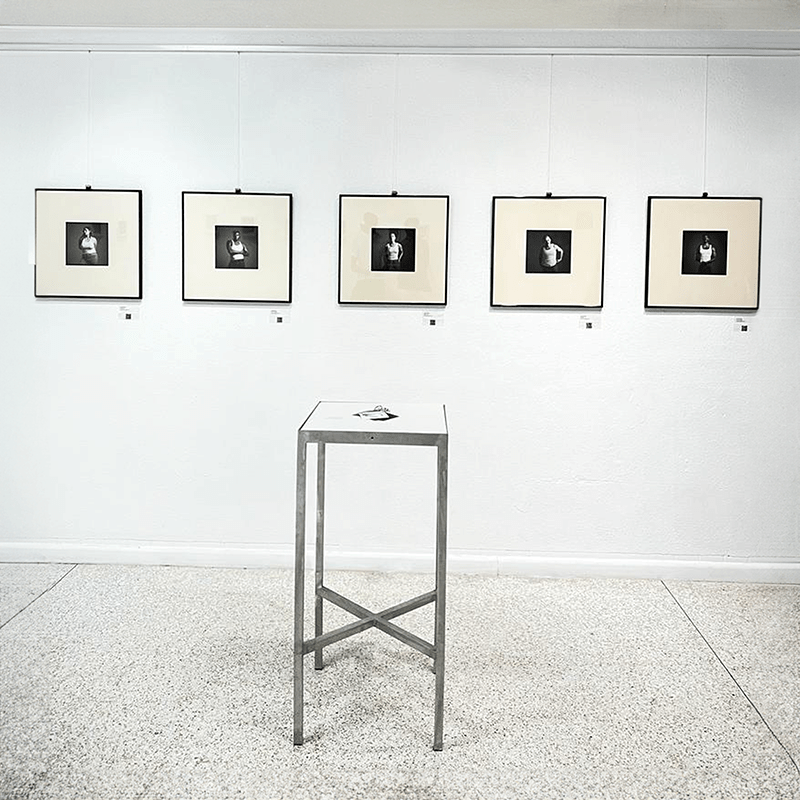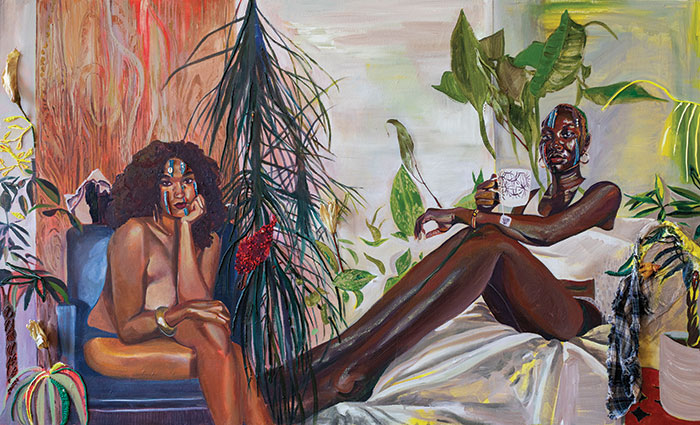ART
César Biojo

Words by Katie Farley
The oil-based portraits and human nudes constructed by contemporary artist César Biojo could inevitably translate as a beautiful decaying process – whereby he destroys to create, conjuring up a mesmerizing effect. Recovering styles of post-impressionist work, Biojo’s aesthetics capture a very personal and thought-provoking language that resonates with the spectator. Incorporating Jean Paul Sartre’s quote, “The gaze of the other makes us aware of ourselves”, his creations interpret an introspective exploration of human beings, taking into deep consideration their conflicts, their nature, and existence.
Born in Colombia, 1981, César Biojo crafts his portraits in Barcelona, conducting visually intoxicating displays that portray a creative infusion of realism, impressionism and abstract art.
“I like to define my painting as a constant search about human nature. My painting is not about politics, race, history, my Colombian heritage or anything other than our human condition. I, therefore, find the nude to be the most direct way of approaching humans without falling into the temporal or époque narrative that clothing may connote,” vocalizes the artist about his artistic reasonings.
Each and every painting that exits his studio inescapably experiences an innovative accident, with the aftermath of the idealistic balance between the meticulous and the not so meticulous as an allegory of existence itself. Biojo’s portraits are ultimately indicative of “where we come from, where we are and that we are going to die”, which explores the concept of formation and one of annihilation. The difficulty lies in the application of over splattering the paint that destroys the original portrait and knowing when enough is enough. “I believe striking the “perfect” balance is inevitably a fleeting objective, being graspable only for a brief period of time, like a human life!”, confesses César.
A flurry of conflicting forces collides when he paints his emotional works, defining his perfect and imperfect applications. Being planned and unpredictable, Apollonian and Dionysian, orderly and hysterical and then some, translates into the stunning engagement, we, as viewers, extract from the artist’s arresting aesthetics. An unsettled beauty takes over, making his art’s incredibly idiosyncratic and somewhat disconcerting at the same time.













